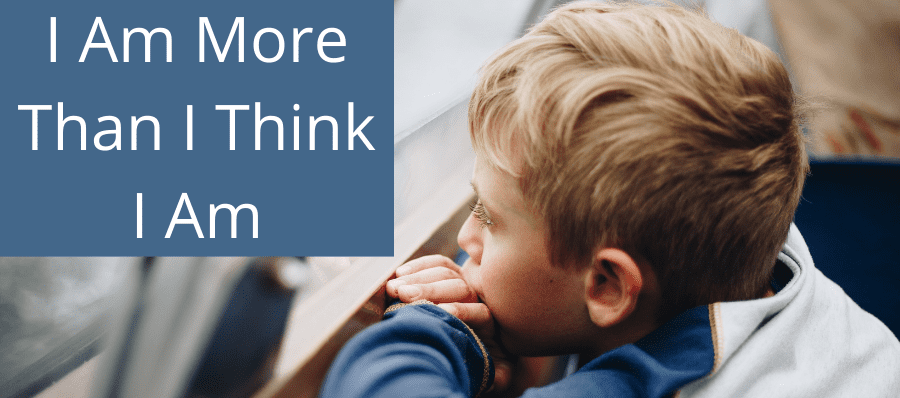We Are More Than We Think

Photo by Idzard Schiphof on Unsplash
How we each perceive our own identities is shaped by a variety of important factors. It’s important to note, however, that our actual identity is more than or different from our perception of our identity. We are more than we think. Reality defines identity more than our individual perceptions. Just because I perceive that I am an apple, that doesn’t make it so. This means we are more than our opinions, more than our desires, more than our actions, and even more than our histories, important as these things may be.
We are More Than Our Opinions
Each person’s inner “self” acts as a “gate keeper” that determines what should be allowed into the individual’s worldview (or internal set of convictions). This means it is ultimately the self that decides what it is going to believe about its own identity. We call this free will. But human will is often mistaken. This is true in the arena of identity as well. Who I am (in reality) can be quite different than my opinion of myself. This is important to understand in a culture where self is often perceived as the final (and correct) arbiter of identity. It is not.
We Are More Than Our Desires
We all have desires. Some are good. Some are unhealthy. While some are somewhat meaningless. Most of us love to eat, for example. This is normal and natural. But within our desire to eat, there are many smaller desires that guide our food choices (what we eat and how much we eat). These desires may lead us to make unhealthy choices. We all understand this. But it’s also important to understand that these desires (good and bad, big and little) do not determine the most important aspects of our identities. I like a well-cooked steak. I may even say, “I am a steak lover.” And this may be an aspect of my identity, but it doesn’t define the fundamental core of who I am. My dog loves steak also, but she and I are fundamentally different beings. Our desires don’t define our identity.
We Are More Than Our Behavior
Behavior is important in the Bible. That’s because our behavior has implications for other people and even the world itself. Behavior can impact our relationships, including our relationship with God. But the Bible places expectations and parameters on behavior because we are human. It’s our humanity that should determine our behavior. It’s not our behavior that determines our humanity. Further, God responds to our behavior as humans differently than that of other creatures. Behavior is important, but we are defined by WHAT we ARE, not how we behave. This means our ministry to people is based on their humanity, not their behavior. We are more than our behavior.
We Are More Than Our Past
We are, in fact, unique individuals due in large part to our past experiences. Our past relationships, experiences, and choices certainly shape who we are today. But we are more than the sum of our past experiences. The present and future hold the potential for new choices and new experiences that will change who we are. What we encounter today and tomorrow will have an impact on our core convictions (worldview) and that will change who we are. But apart from our experiences and worldview (shaped by our pasts), the Bible declares that we are made in the image of God. However we may define God’s image, it means that we are who He says we are regardless of our histories.
This article is one of a series related to identity.
Find Helping People Develop a Biblical Identity here.
Find Shaping Identity in the Local Church here.
Find Identity and the God of the Bible here.
Find Identity, Relationships, and Distinction here.
Find Identity and the Self here.
Rick Edwards
Author, Speaker, Bible Teacher
See a list of other articles by Rick Edwards.



